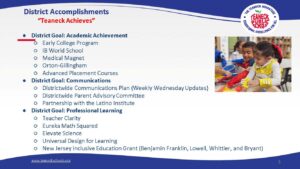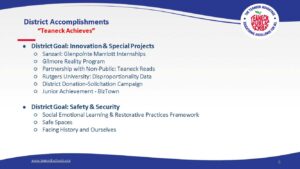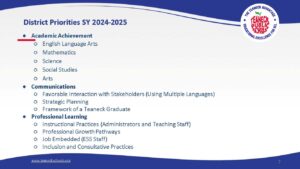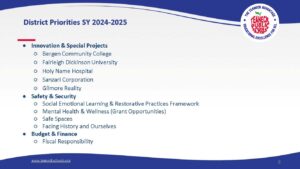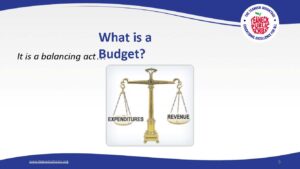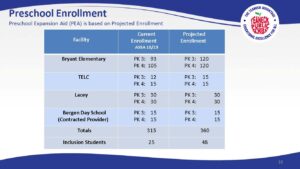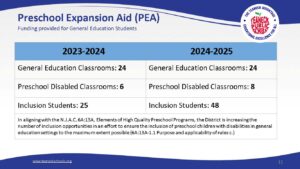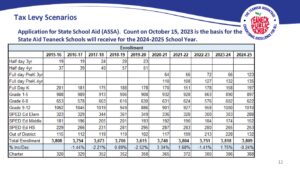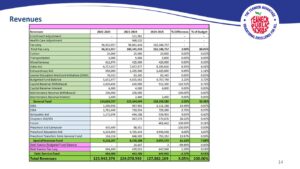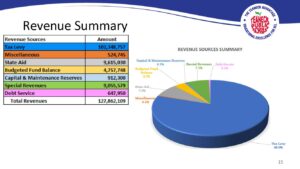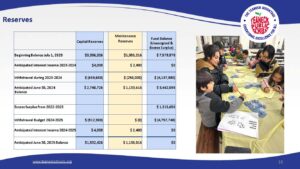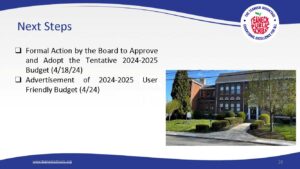A significant win for Transparency in Teaneck
“When we talk about the purpose of the open public meetings act and similar statutes, they are meant to provide relief to the public when the statutes are not being followed–and the rules are not being followed by the public entities. And in this instance, Mr Kaplan has come forward and shone a light on this particular issue at the Teaneck School Board.”
– Superior Court Judge Carol Novey Catuogno
To properly notice a meeting, the Board must post an annual list of meeting dates by January 10th of each year or notice a particular meeting with its agenda. You need to send the Notice to 2 newspapers, put it up on your website, send it to the Municipality and place it on the bulletin board so people can see.
The Notice must be stated at the beginning of each meeting and be included in the minutes of the meeting.
Teaneck has failed to properly notice meetings, for years. And now that must change — by Court Order of the Superior Court of the State of New Jersey, County of Bergen.
Months of warnings over an ongoing series of violations of the Transparency Law
For months, the Board members stood with Superintendent Spencer and the decisions to remove Principal Valdes, to operate without proper notice and to ignore the warnings that their decisions can be voided. The weight and influence of the Weiner Law Group gave cover and credibility to those acting in secret.
Back in December, I stated that Superintendent Spencer abused the community’s trust, by operating secretly and holding votes that did not in any way comply with the Open Public Meetings Act, NJ’s “Sunshine Law”. Few took me seriously.
And when Superintendent Spencer removed Principal Valdes from THS, I spoke up. The Board didn’t listen.
I asked the Board to do the right thing–and redo the vote (according to the Sunshine rules). The Board refused.
I explained to the Board of Education and the Public how the Sunshine rules regarding transparency required a new vote. The Board still refused to take action to remedy the violations.
I went to meeting after meeting. I stood before the Board, and in January I said they had one last chance before I forced them to do the right thing. The Board still refused.
I’m not a lawyer. I never went to law school.
But I learned my way around the legal system a bit. And while I’ve never been a litigant, I thought what the Superintendent did to Principal Valdes was not ok. What the Board permitted, was not ok. In short, this was a case worth making and more importantly, no one else was making it.
What is the issue?
In 1975, NJ created a series of “sunshine laws”. They require, at a minimum, to let the public know what you plan to do and describe in detail how to notice meetings.
As per the assignment Judge for the Superior Court of the State of New Jersey, the Township of Teaneck’s Board of Education has been violating the transparency rules for quite some time.
“One cannot ignore that there has been a series or a longstanding consistent failing under the Open Public Meetings Act to notice these meetings properly. Having said that I do think that remedy is necessary.”
– Superior Court Judge Catuogno (official court transcript forthcoming)
Not only must the Board re-do several of their votes from last year (including the votes last December to transfer Principals Valdes & LoGuidice), but they also must re-vote the Re-Organization meeting of January 3, 2024 — where they decided on who will be President / VP of the Board, Secretary, Board / District Legal Counsel, and other matters. All must be re-done, in strict compliance with notice rules.
The Judge also entered an injunction, that the Board must strictly abide by the Open Public Meetings act moving forward.
Judge Catuogno also found that the exemption that schools need not notice agendas, does not apply in Teaneck. The reason is simple: to receive the benefit of the exemption, you must notice your annual meeting list in accordance with the law–and Teaneck’s Board of Education did not do so. As such, not only must each meeting going forward be noticed as to the time, date and location, but the AGENDA, must also be noticed, including topics for closed session discussion.
This is a significant win for transparency!
Judge Catuogno said that she is “confident that Mr Edelstein will counsel the Board of Education that they are to comply with every aspect of the Open Public Meetings Act”.
Let’s see if she is correct.
The Meetings of December 21, 2023 and January 3, 2024
The Board has 70 days (until September 26, 2024) to re-do the votes of the December and January meetings. If they fail to do so, those votes are voided.
This is, as the President would say, a big f’ing deal.
The actions, in the judge’s words, were egregious enough and the pattern of the actions was longstanding enough, that an injunction was provided to force the Board to comply with the law.
“I’m particularly, specifically I should say, looking at counts three [transfer of principals] and four [holding the re-org meeting] for which relief has been granted. In both of those counts, in addition to the declaratory relief, the voiding of actions taken, I’m asked to award what’s generally referred to as injunctive relief. Thereby compelling or therefore compelling the defendants to change their agenda and public notice practices to provide adequate notice to the public.
I think based upon a review of the facts and circumstances in their totality, including the instances or the meeting dates referenced in count one (although they did not… they’re not cognizable before this court because they violate the statute of limitations), I do not think they can be ignored that this has been an ongoing pattern and it carries through to the counts three and four, where relief was granted, that there has been a pattern here.
Accordingly I do think it is appropriate for the court to enjoin the defendants and inform them that they are required, as is everybody that legislates or passes any sort of administrative policies, personnel decisions on behalf of the public–are required to comply with, in strict adherence according to the Supreme Court of the state of New Jersey, with the mandates of the open public [Meetings] act.
So I do think injunctive relief is granted.
This is appropriate in this instance and therefore it is granted.”
The law doesn’t stop you from making bad decisions, but it does stop you from doing it behind people’s backs.
Moving Teaneck Forward, the BOE must keep everyone informed as to what will happen in their meetings.
Case documents:
BER-L-000121-24_2024-07-18_Order




